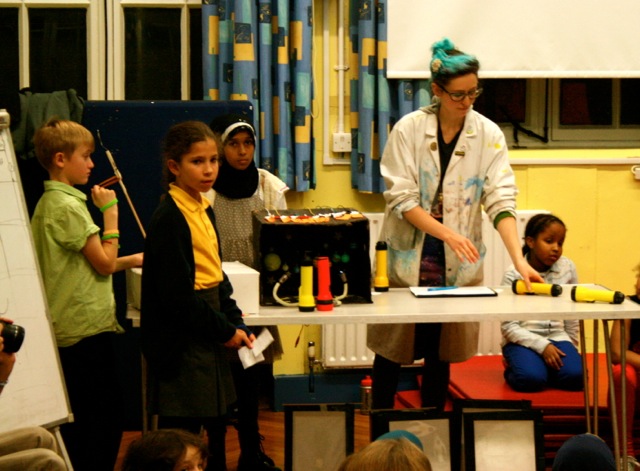On one side a shabby council estate, on the other side a pitch-dark park. Not the kind of street I particularly enjoy walking along.
Not the kind of place either that small children should be unsupervised at 8.45 on a Saturday night.
But that’s where I came across them. Three boys involved in a vicious fight.
I heard them before I saw them, a string of F***s coming from the older one as he smashed the little one’s head against the park railings, adding the occasional furious punch to the guts.
At a rough guess I’d say they were aged about six and nine – at the most.
“It’s alright, they’re brothers” said the third one as I waded in.
“It’s not alright” I said, lowering my voice slightly from the initial “OI STOP THAT” yelled when I first saw them, and physically pulling them apart.
The older one stomped off. A little ball of fury chocking back tears. His younger brother sniffled along a few yards behind.
They seemed so vulnerable – and I don’t mean to each other. What were they doing out alone on a cold dark night? It occurred to me to march them home, but to what? I didn’t fancy a confrontation with whoever was supposed to be in charge of these kids.
What about calling the police? I thought about that too but I was late for the event I was supposed to be at, the police probably had better things to do on a Saturday evening and besides, what could they actually do for these boys other than maybe, for that night at least, get them off the street?
Which brings me to Keir Starmer’s call for mandatory reporting of child abuse allegations.
It’s a perfectly laudable aim in many ways. But my question for him is: then what happens?
The failure of health, education and social care professionals to report suspicions of abuse is appalling – when it happens. But it’s not the only obstacle to protecting children. Far from it.
Manipulative parents are good at running rings around hard-pressed professionals. We’ve seen it time and again. Worse, as I’ve written here before, vulnerable young people are too often simply not believed.
It’s true that many of Jimmy Savile’s victims were dismissed or told to keep quiet when they reported abuse to hospital or school staff. But when allegations did get as far as the police, “Jimmy” (as the interviewing officer called the star throughout his interview) ran rings around them. Just take a look at the transcript to see how it was Savile, not the police running the show, dismissing his victims as hangers-on hoping for some cash.
Similarly in the appalling case of four year old Daniel Pelka, starved and tortured to death by his mother and her partner. Of course teachers and doctors should have done more, but it’s not as if the police didn’t know there was a serious problem in the family.
They had visited the boy’s home 26 times in the years before his death. As the official case review said, Daniel was “invisible,” while his mother had a remarkable ability to “hoodwink” anyone who questioned his health.
And remember the young women raped repeatedly by the gang of Rochdale men who then trafficked them to countless others? Social services let them down badly for sure.
But one girl did go to the police. She told her horrific story, she even provided samples of her attackers DNA. The police believed her and arrested two men. But the Crown Prosecution Service decided not to prosecute. The teenager was too damaged to be a credible witness in court, they said. The men were released without charge and the abuse continued.
So, Keir Starmer, by all means change the law to compel professionals to report allegations. But only if we go further and rethink the way in which those allegations are investigated. To start with, police, social workers, schools and health services have to work more closely together. In the words of the Pelka case review, there must be a more “holistic” approach.
And yes, maybe neighbours and even strangers in the street have to get involved too.
But joining up the dots is only the start. Once the allegations are reported, investigators must listen to the victims. And everyone – police, CPS, judges and juries – needs to remember that authority figures, whether parents or TV stars, sometimes lie. Just because a young person is vulnerable or damaged doesn’t mean they can’t be believed.
